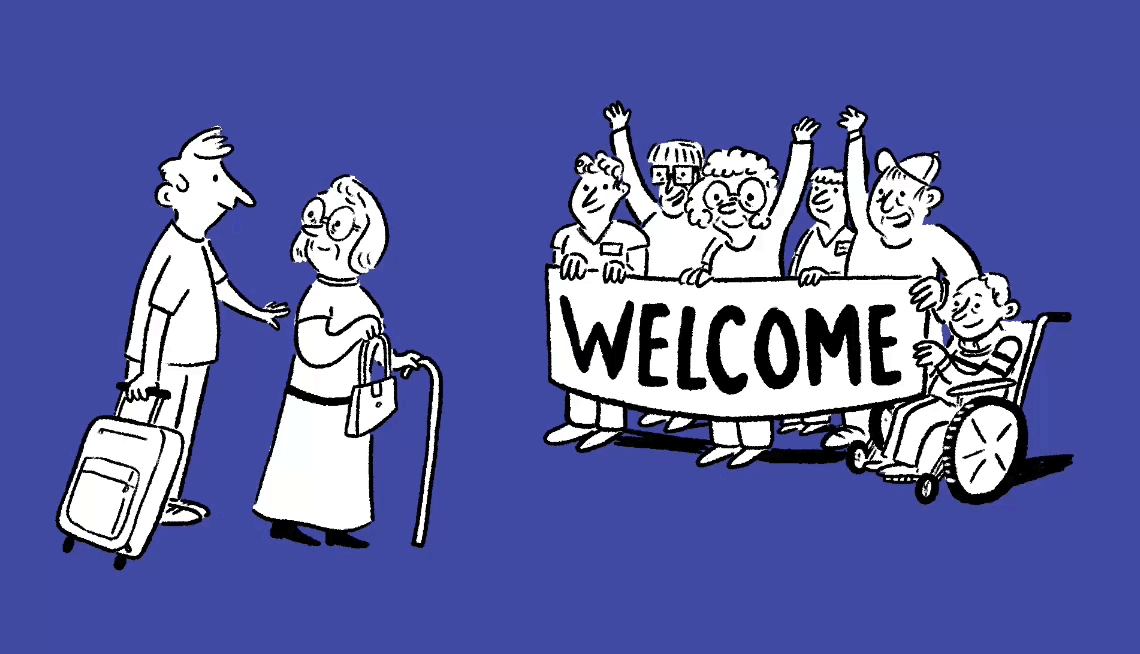AARP Hearing Center


My mother lives alone and I worry about her. How do I know when it’s time for her to go to an assisted living facility?
This situation is different for everyone. A lot of people say, “Dr. Adam, my mom told me never to put her in a nursing home.” Or, “I couldn’t do that to my father.” And I get it. You don’t want to go against their wishes. Unfortunately, too often it comes down to the matter of a parent’s safety. When this happens, as difficult as it might be, it’s time to think about options. Let’s look at the circumstances that might lead you to consider an assisted living facility.
I would say the primary one is if your parent is having a tough time managing day-to-day activities: tasks we take for granted such as dressing, bathing, doing laundry, brushing teeth and using the toilet. The Centers for Disease Control estimates that approximately 14 percent of adults over 75 years old need assistance managing these kinds of chores. Keep in mind that if your parent is unable to properly take care of his or her body, this raises the risk of life-threatening infections..
An inability to prepare food is another red flag, usually heralded by weight loss. This could be the result of a shrinking appetite. But many times, it’s simply difficulty negotiating food. Maybe they can no longer shop, cook or even think about meals. This can contribute to malnutrition and dehydration, both also life-threatening.
If your parent forgets to take medication or takes more than the prescription allows, they’re in dangerous territory. Just this past weekend I received a call from a family whose mother couldn’t remember if she had taken her pills — and took more. It was a medication with serious side effects. Her frantic daughter called because she found her mom confused and lethargic, the result of being overmedicated.


Ask Dr. Adam
Adam B. Rosenbluth, M.D., is an internist and cardiologist in New York City. Each Monday, he’ll weigh in on your questions about how to make your body work better for you. His AARP book will be published in 2027. Join in on the conversation on social media @dradamrosenbluth to learn to move the needle on your personal health in an achievable way.
Another big concern is what I call “terminal loneliness.” Studies show that people who become isolated are more susceptible to cognitive loss and depression. If you see that your mom or dad is becoming confused on the heels of solitude, it’s a signal they need a higher level of care. Confusion can easily trigger a disabling injury.
This brings me to falls, which I consider a huge concern. About 1 in 4 adults over 65 fall every year. While not all tumbles are catastrophic, around 37 percent of folks suffer an injury that requires medical attention. If someone is alone in their home when they fall, it can lead to serious complications, even death.




































































You Might Also Like
Is It Wrong That I’m Not Sad in My Empty Nest?
Some people are sad being empty nesters, but in my mind, the best is yet to come
Insider Secrets From a Top Emergency Room Doctor
18 tips to help you get better care and navigate the emergency room with confidence
25 Great Ways to Cut Medical Bills
Get free health exams, spot billing errors, and other steps you can take